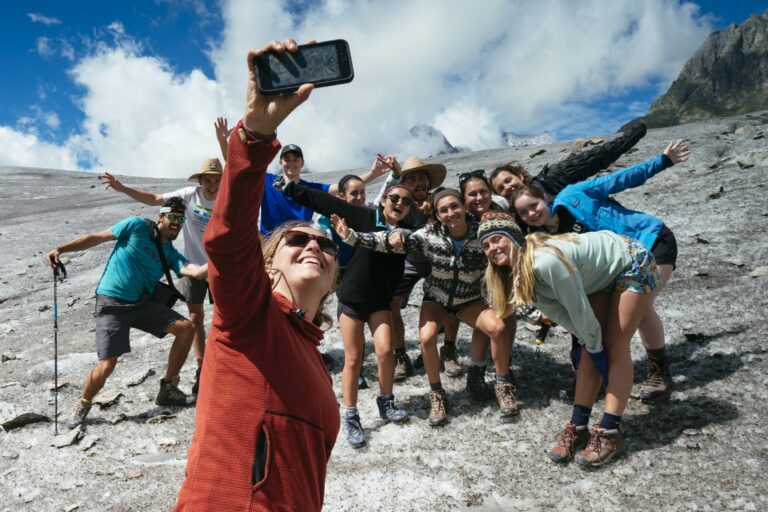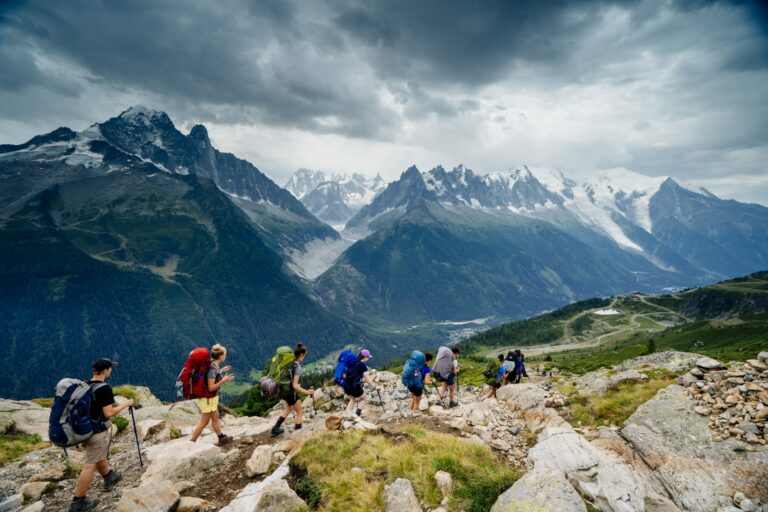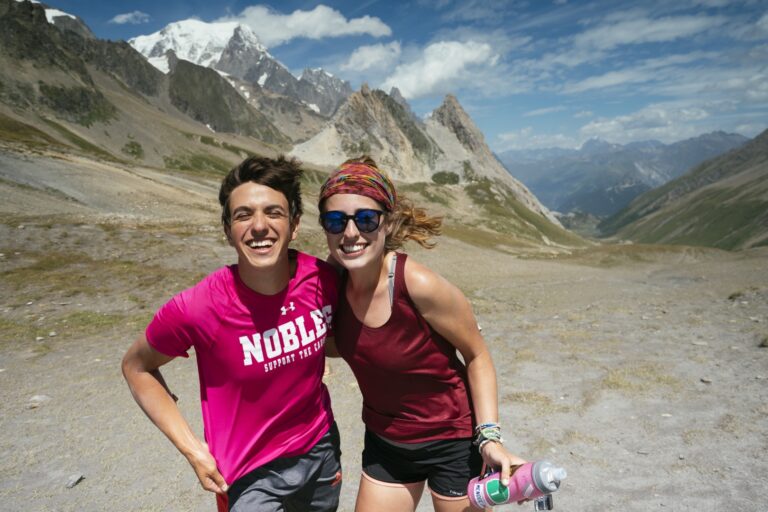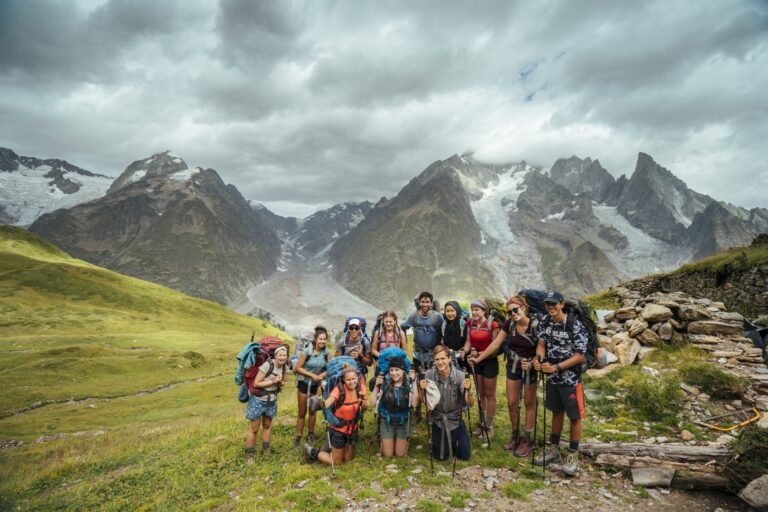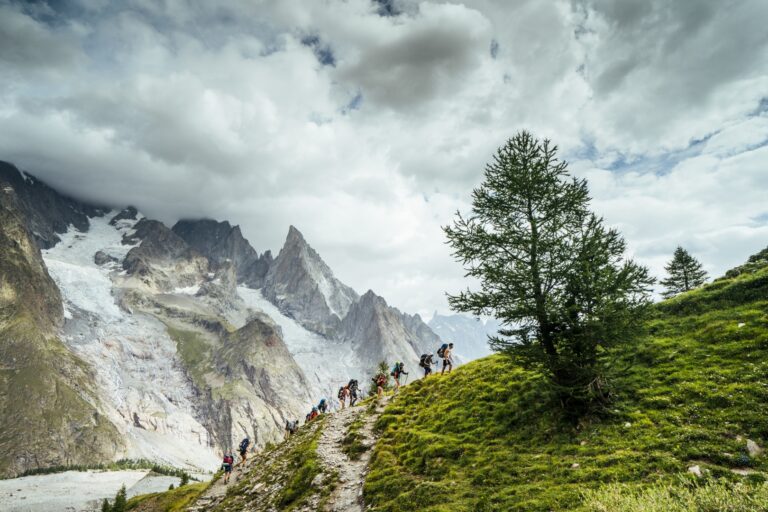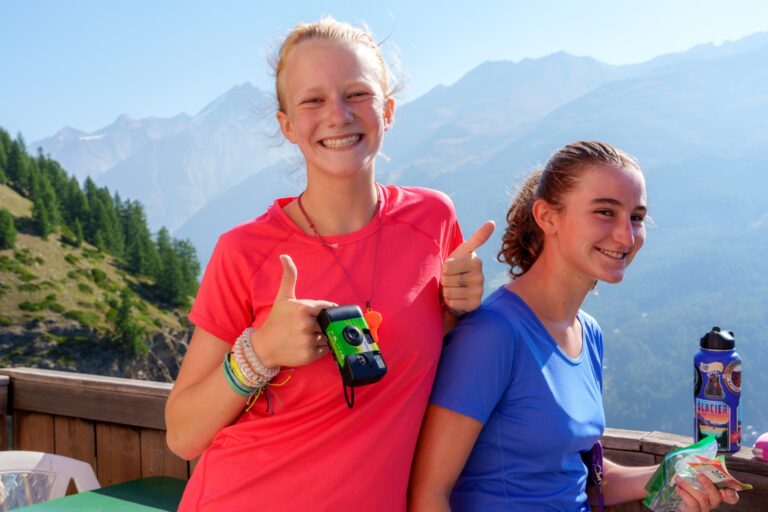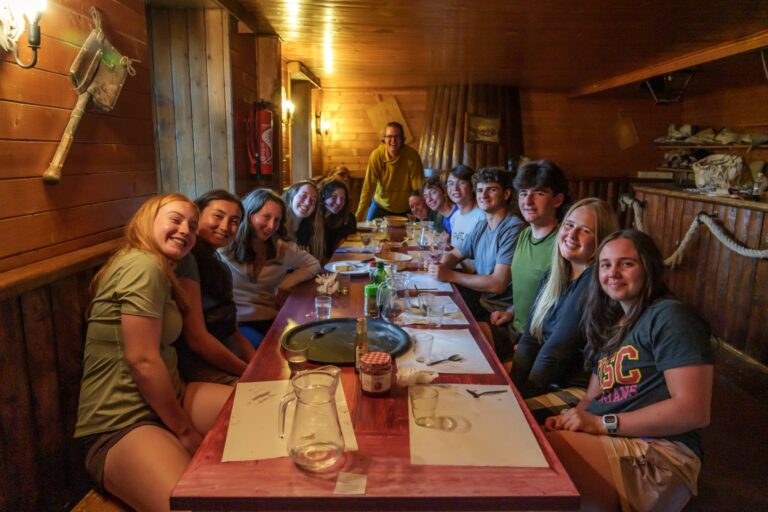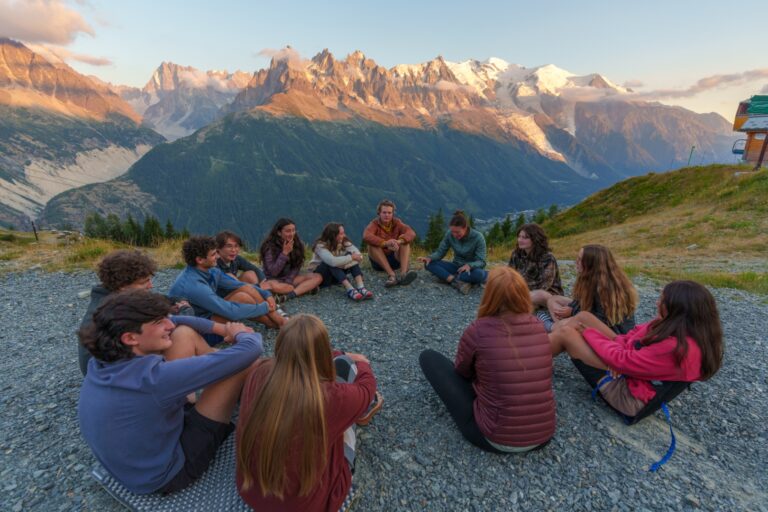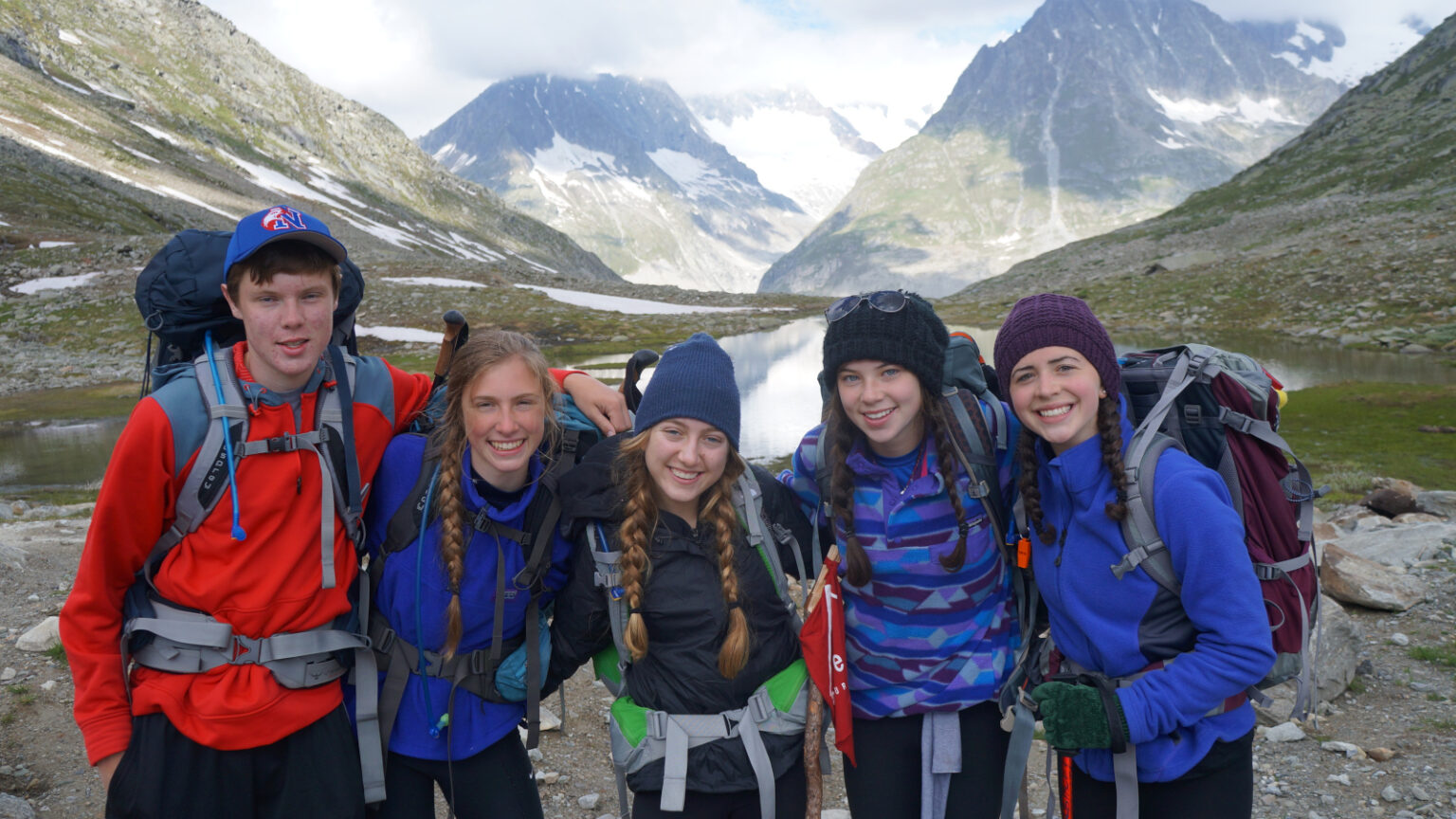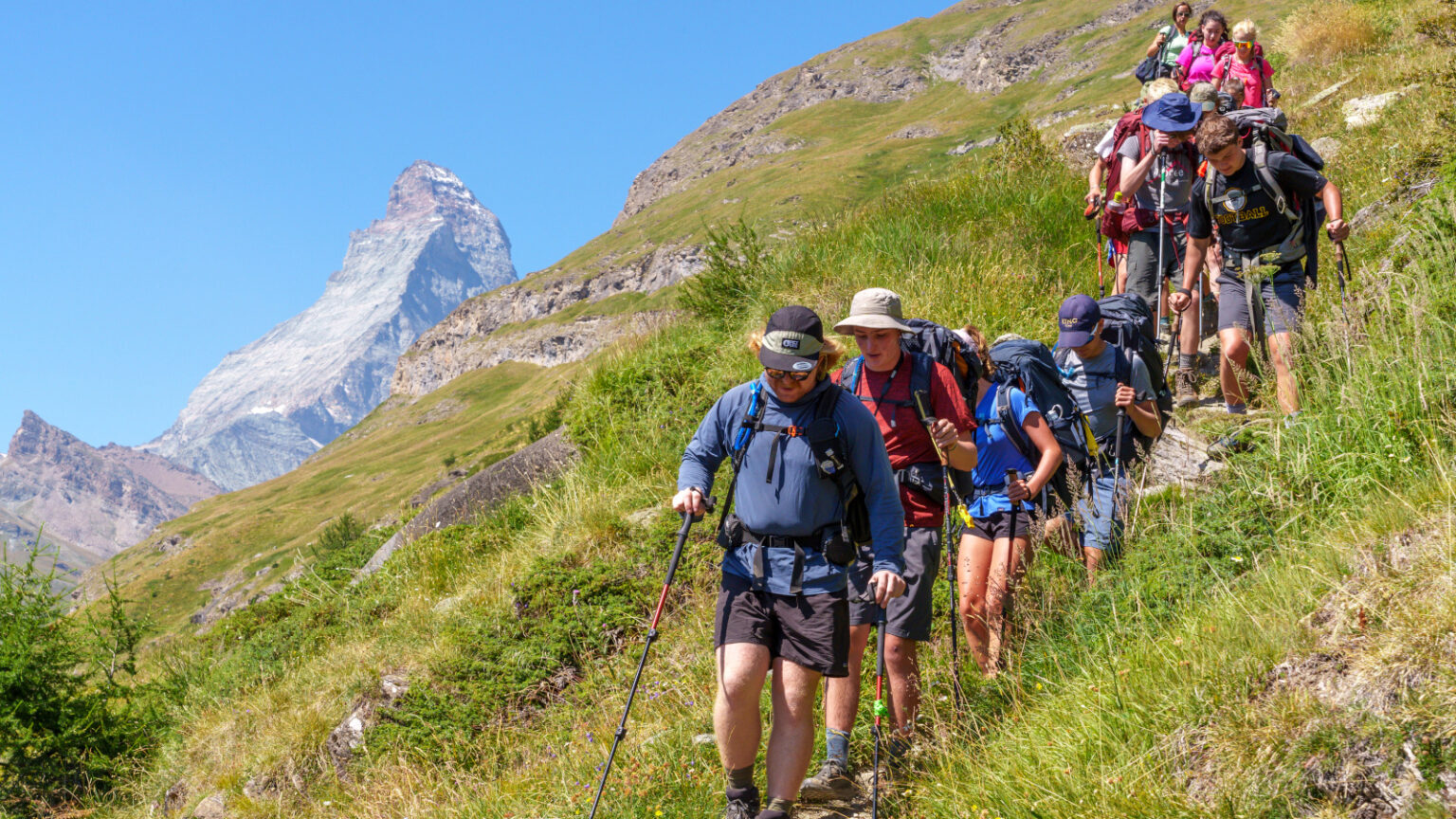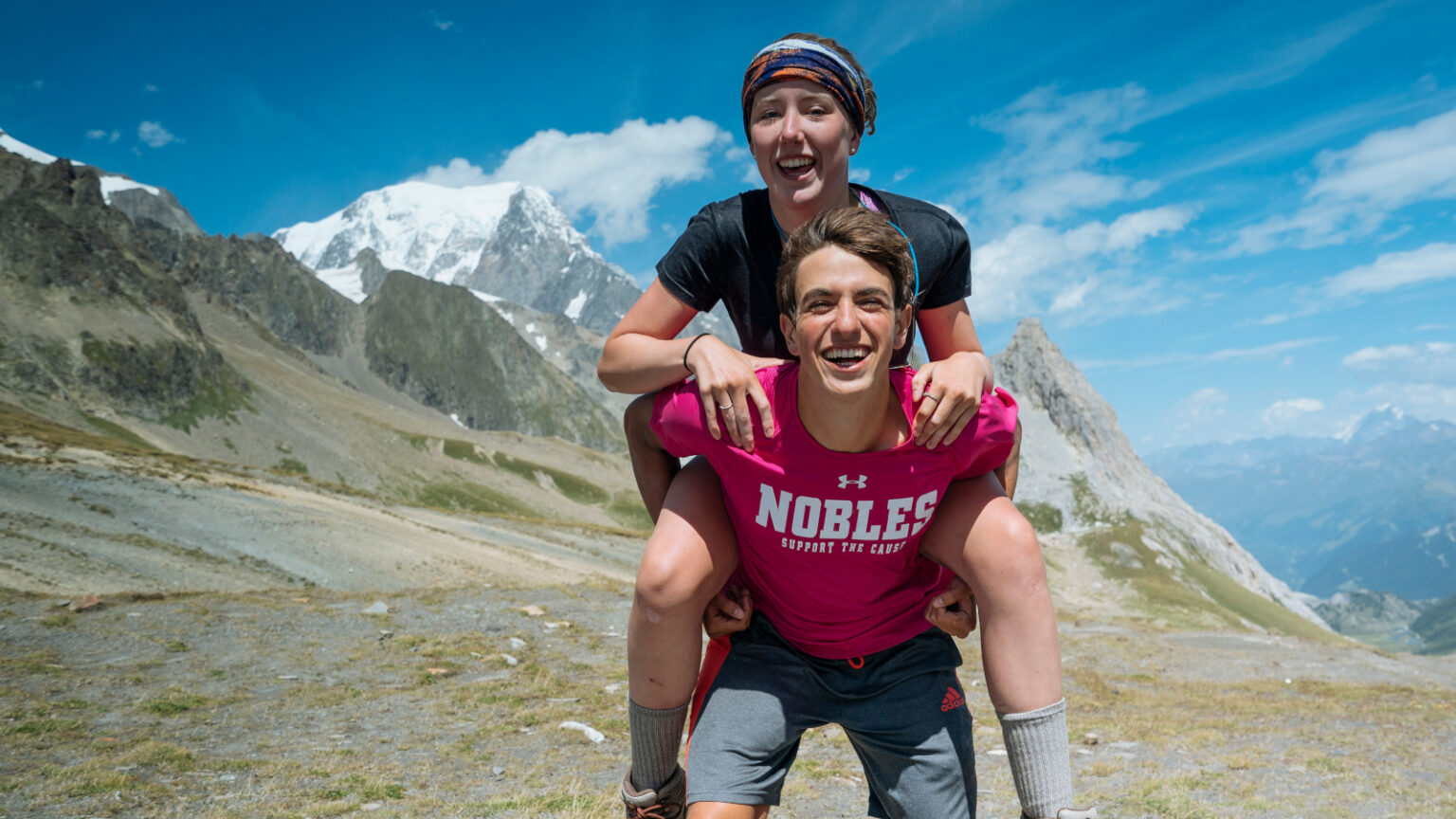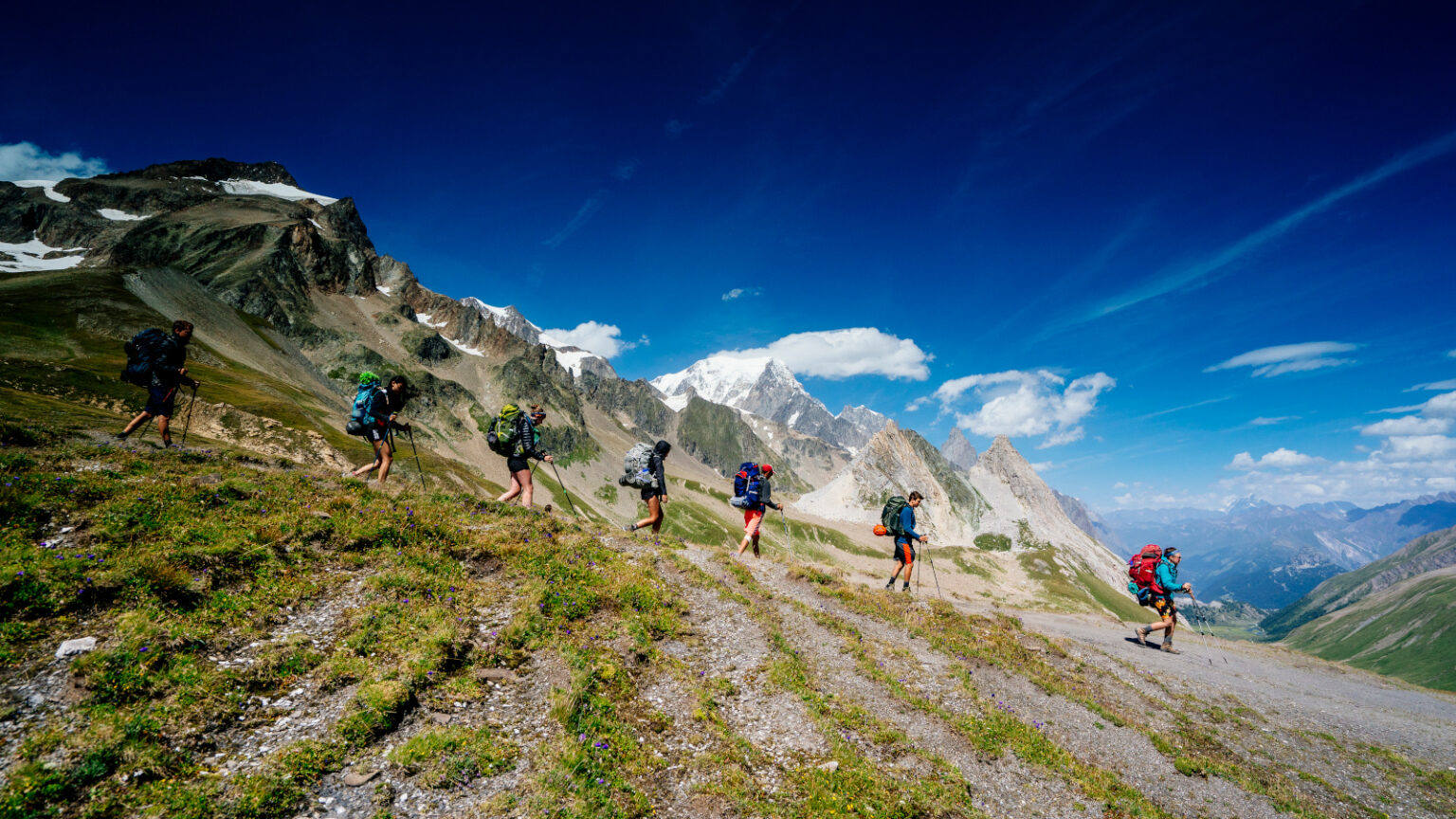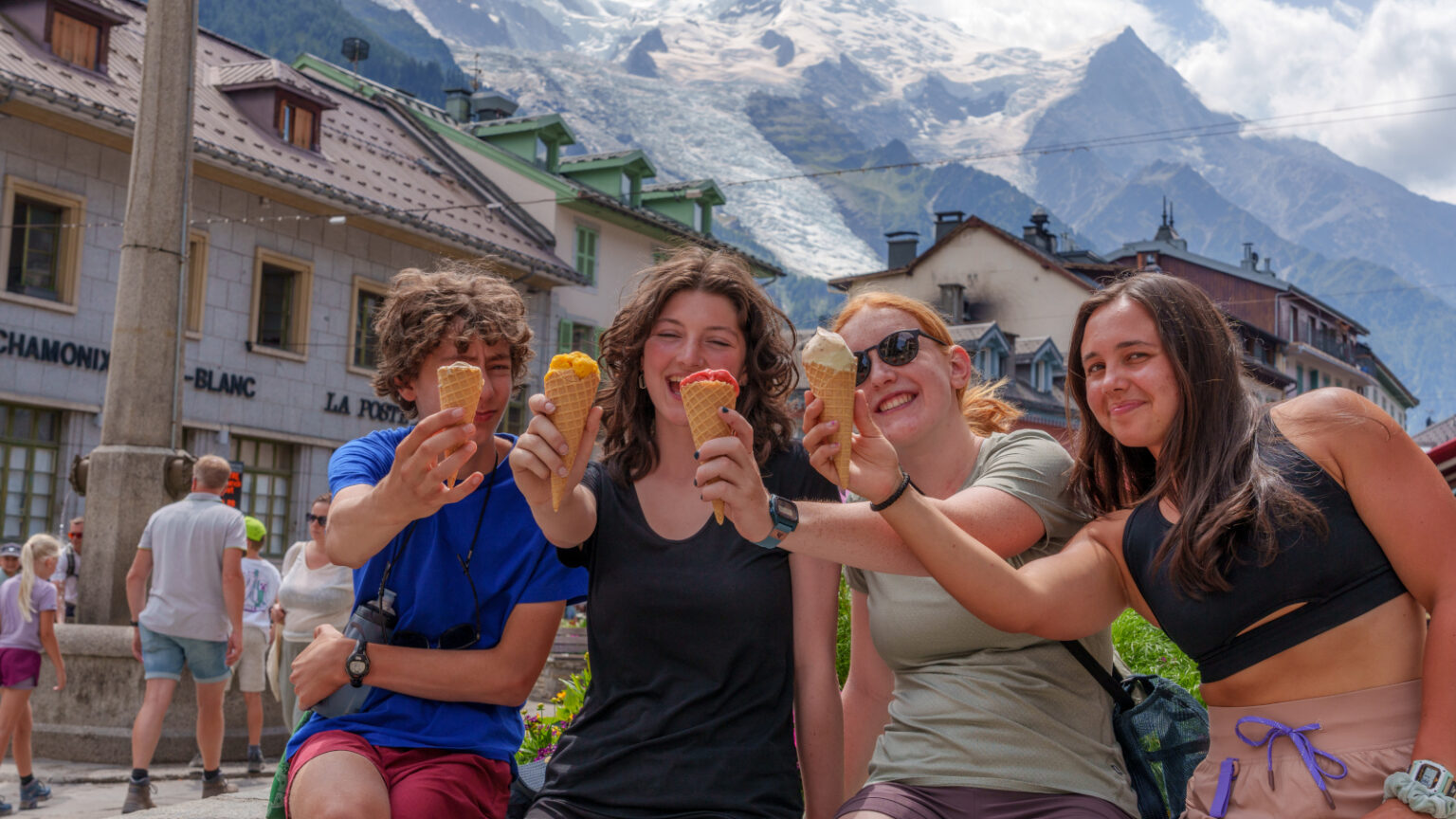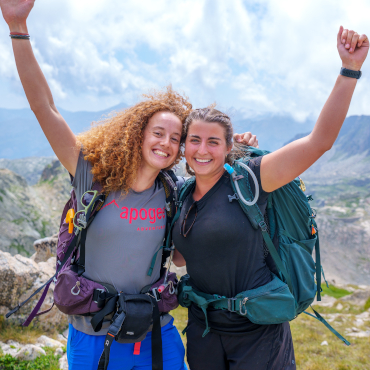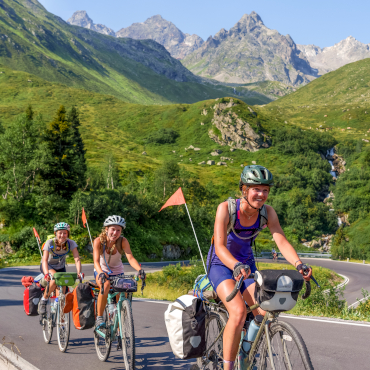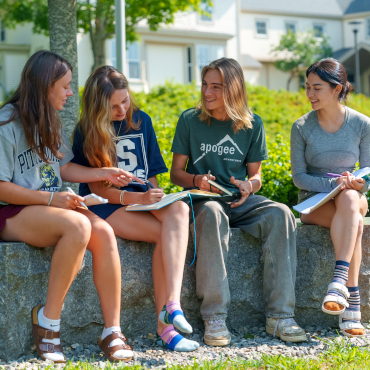Highlights
- Hike through France, Italy, and Switzerland
- Explore Zermatt and Chamonix
- Trek the world-famous Tour du Mont Blanc
- Celebrate and explore in Geneva
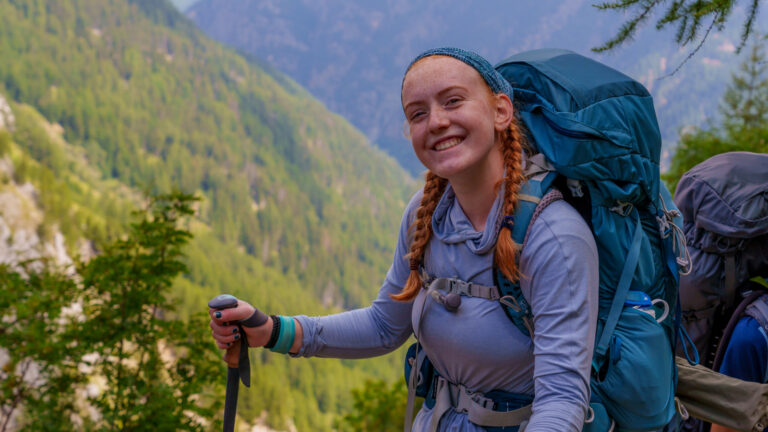
Trip Details
- Start: Geneva, Switzerland
- End: Geneva, Switzerland
- Age Range: 15 - 18
- Cost: $5,999
Dates
Jun 28 - Jul 14 (Limited)
Jul 18 - Aug 3 (Limited)
Trip Itinerary
Trek and explore Europe’s most majestic mountains. You have seen the iconic image of the Matterhorn and know Mont Blanc as the highest peak in the Alps – now, it is your time to personally experience Europe’s breathtaking mountains on our epic 17-day Alps Explorer backpacking trip for teens. Starting in Zermatt, Switzerland, you will hike winding trails to Alpine huts and take in the stunning beauty of the Matterhorn towering overhead. Next, you will set out on the world-famous Tour du Mont Blanc. This twelve-day, three-country trek will take you around the highest mountain in Europe, provide more postcard-perfect views than one can count, and have you ordering caffè in Italian, croissants in French, and rösti in German. As a grand finale, you will head to the sparkling, world-class city of Geneva to relax and celebrate your many Alpine adventures.
Zermatt & the Matterhorn
Arriving into Geneva’s International Airport, we will transfer directly to the town of Zermatt in Switzerland’s picturesque Valais region, getting to know our tripmates on the scenic train ride up the valley. Using Zermatt and its flower-box filled streets as our base, we will spend our first few days hiking in the shadow of the world-famous Matterhorn. Climbing out of the valley and up above tree-line, we will feel the burn of a tough climb, but be more than adequately rewarded by cool Alpine air and striking views of the Matterhorn and its neighboring mountains.
Tour du Mont Blanc: France
From Zermatt, we will transfer to the small city of Martigny at the foot of Mont Blanc. Here, we will take a day to catch our breath and get geared up for our upcoming backpacking trip. Well-provisioned, we will set off on the full Tour du Mont Blanc. Over the course of 12 days and 110 miles, we will travel ancient footpaths through quiet valleys, climb high mountain passes, bask in unending Alpine vistas, and cross international borders – all on foot! After crossing into France, we will enjoy an evening at a charming refuge nestled in the mountains, complete with a wonderful three-course, home-cooked meal. After five spectacular days in France, including an afternoon in the busy town of Chamonix, we will cross our second border of the trip as we make tracks into Italy.
Tour du Mont Blanc: Italy & Switzerland
Crossing into Italy, we will enjoy a well-deserved pit stop in the mountain town of Courmayeur. You can be sure that we will take time to pause for a real Italian pizza and gelato during our rest day before hitting the trail again en route to our indoor stay at a refugio overlooking the thousand-year-old Prè de Bard Glacier. Our third and final border crossing brings us back into Switzerland for the last leg of our trek. The Tour du Mont Blanc offers an amazing taste of three distinct Alpine cultures. Upon completion, we will know first-hand the common threads of the region and will savour the wonderful differences that make each place unique.
Celebrating in Geneva
We will spend our final day together in the historic, proud, and beautiful city of Geneva. The famous, high-shooting Jet d’Eau water fountain will punctuate our celebration as we explore the city and reflect on the many highlights of our unforgettable teen backpacking program.
Reviews
Frequently Asked Questions
Please see our General FAQ page for many more frequently asked questions and answers!
How physically challenging is AX?
Given a Challenge Level 8 (out of a maximum of 10), we consider AX to be an advanced hiking trip. We believe that any moderately fit, motivated student can successfully complete this trip with appropriate preparation. Compared to similar hiking trips, we believe that AX is more challenging than our Pyrenees Mountains & Coast trip due to the trip length and total mileage covered. The group will hike up to 15 miles on their most challenging day, while their daily mileage typically spans between 9-12 miles. Please note that all of Apogee’s Challenge Levels are not scientific and are subjectively calculated by the Apogee staff.
Where will my child be sleeping at night?
Our AX groups will be camping for 14 of the 16 nights over the course of our trip, and each of those nights will be spend in established, front country campsites. We will spend the other two nights of the trip indoors (one night in mountain hostels called rifuges or rifugios and one night in a Geneva hostel). Leaders will separate students by gender into tent groups, and will rotate those groups several times over the course of our trip. Students will share a tent with one or two other students.
What is the difference between front country and backcountry hiking? What will the backcountry portion of AX be like? How much weight will my child carry during this portion?
Generally speaking, the front country is any area that is easily accessible by vehicles and day users. Hiking in the backcountry, on the other hand, involves hiking and camping in more remote locations without running water. Hiking and camping in the backcountry requires more preparation, because of the need to pack all food and gear. Our AX groups will be carrying several days worth of food and all of their equipment on a point-to-point-style hike during the two-week Tour du Mont Blanc (TMB), so in that respect they are backcountry hiking. However, very few portions of the TMB are truly remote; our groups will be passing through towns and settlements on a near daily basis. That said, there are portions that will be rugged and not accessible to auto traffic. Your child will be carrying their personal gear (sleeping bag and pad, clothing essentials, personal toiletries) along with their allotted portion of group gear and food. For the most extended portion of hiking on our AX trip, your child should expect to be carrying between 25 and 40 pounds in their pack.
How will I communicate with my child while they are on this trip?
We are a technology-free program, meaning that your child won’t have access to their phone or other electronics over the course of their trip. That said, students will be able to call home on their trip leaders’ phones once over the course of the trip (usually around the midpoint of the trip). Students on international trips will also call home at some point on arrival day, depending on schedules and arrival times. We also have one mail stop on Alps Explorer; parents, relatives, and friends are welcome to use this to send letters or postcards to a student. Note that we do not allow packages to be sent – letters and postcards only. If you have an urgent message to get to your child, please call our office and we’ll work to get you connected with your child.
What is the maximum number of students I can expect on my child’s Apogee trip?
There are never more than twelve students on an individual session of this trip. Additionally, we limit enrollment by gender to two-thirds/one-third. Groups are always led by two qualified leaders.
This trip starts outside of the United States. What do I need to know before traveling internationally?
In addition to needing a valid passport, we encourage you to coordinate travel with other attendees. To that end, we’re happy to put you in touch with other enrolled families from your region. Please note that Apogee staff members do not travel with students; our trip leaders will already be in Geneva on arrival day and will stay in Geneva after the trip ends. Apogee staff and trip leaders will have a detailed flight itinerary for each student and will be at the airport to greet them on arrival; our staff will also accompany students to the airport to assist with departures. We will provide enrolled families with a Travel Information document covering details specific to traveling to and from Geneva, including airport information and arrival and departure time windows. We know that international travel can be daunting – rest assured that regardless of flight cancellations or delays, we will always have someone on hand to assist with our students’ arrivals and departures.
Aside from the trip cost, what are the additional expenses for this trip?
Apogee’s tuition costs are meant to be all-inclusive and include all meals, accommodation, and activity fees. The most significant additional expenses on our Alps Explorer trip will include travel to and from Geneva, Switzerland, hiking boots, sleeping bag and pad, backpacking pack, and personal gear. We suggest that you review the packing list (downloadable on this webpage) to determine what personal gear you already own and what you might need to acquire for this program. Please also check out our Gear Recommendations blog post for links to our personal recommendations.
